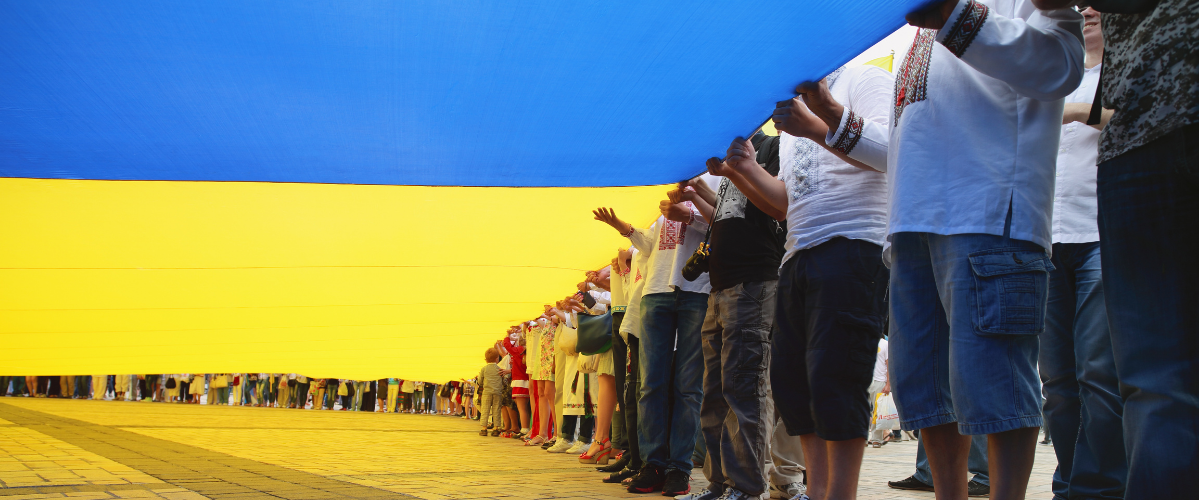It’s been several weeks since Russia invaded and attacked Ukraine and, in that time, those of us witnessing from afar have seen a war and a humanitarian crisis unfold. This has been incredibly difficult to watch but that is absolutely nothing in comparison to the reality on the ground.
As civilians flee their homes and are killed, as fears of nuclear weapon use are discussed across dinner tables, as ceasefires are ignored and we watch children and seniors succumb to violence, we cannot stay silent.
Canada has the second largest Ukrainian population outside of Ukraine and Russia. And this means there are many people across Canada, and in British Columbia, who are also suffering the consequences of this war, worrying about loved ones, and watching the horrors inflicted on their homelands.
However, we cannot claim to be experts in the history since Ukraine’s independence, the Cold War, geopolitics of the Ukraine-Russia region, nor in complex humanitarian crises, and certainly have no knowledge of what it must be like for the people suffering the effects and fears of this war. But we are knowledgeable about people—because at its essence public health is about people and the health of groups, communities, and our population overall.
What is happening in Ukraine right now has severe impacts on public health and that means we have a role to talk about this crisis and to show our unity with the people there, and here.
While we cannot conceive to have solutions, or be able to alleviate any suffering, what we can do is offer solidarity and one of the actions we offer regularly—information. So, today’s Activate Health call-to-action is this: don’t look away; do what you can to understand what is happening.
For if we learn, we can find ways to support; if we pay attention, we offer ourselves in ways that show kindness and consideration; if we read, we are absorbing this reality so that maybe, just maybe, atrocities like this can be prevented in the future; and if we don’t turn away from what is happening in Ukraine, perhaps we won’t turn away from brutalities happening in other parts of the world too.
While this is about Ukraine, we would be remiss if we didn’t acknowledge there are many atrocities being committed across the world, many humanitarian crises we must address, and that racism continues to be a strong undercurrent in what we pay attention to, and how we respond. This is all public health. Let’s use this time to also reflect on that.
Today we offer a short list of resources that we have curated. This list is nowhere near complete, nor offering all areas that are needed in order to truly understand what is happening. This list is a starting point, a place to begin, a small way to show our support and ask you to show yours. By paying attention, we witness; by witnessing, we become informed; by informing ourselves, we take action.
- What is the history of the Ukraine-Russia relationship?
- Why did Russia attack Ukraine?
- What is the international community doing?
- What are sanctions?
- What is a humanitarian crisis?
- What are the Geneva Conventions?
- What is NATO?
- What is a no-fly zone and why is it so relevant?
And here are a handful of organizations that are experts and are reputable sources of information, updates, or support:
- International Committee of the Red Cross (ICRC)
- United Nations (UN)
- European Union (EU)
- World Health Organization (WHO)
- Government of Canada Immigration
If you’re feeling in need of personal supports, here are a few options:
We will do our best to keep this page updated with reputable resources as they become available.
Today, we call on you to Activate Health by paying attention, learning, reading, and not turning away. Canada isn’t, BC isn’t, and none of us should. And this means for anyone needing our help.
Our individual actions, even simply sharing information and compassion, matter to the health of populations and to our collective support for the people impacted by this crisis in Ukraine.
